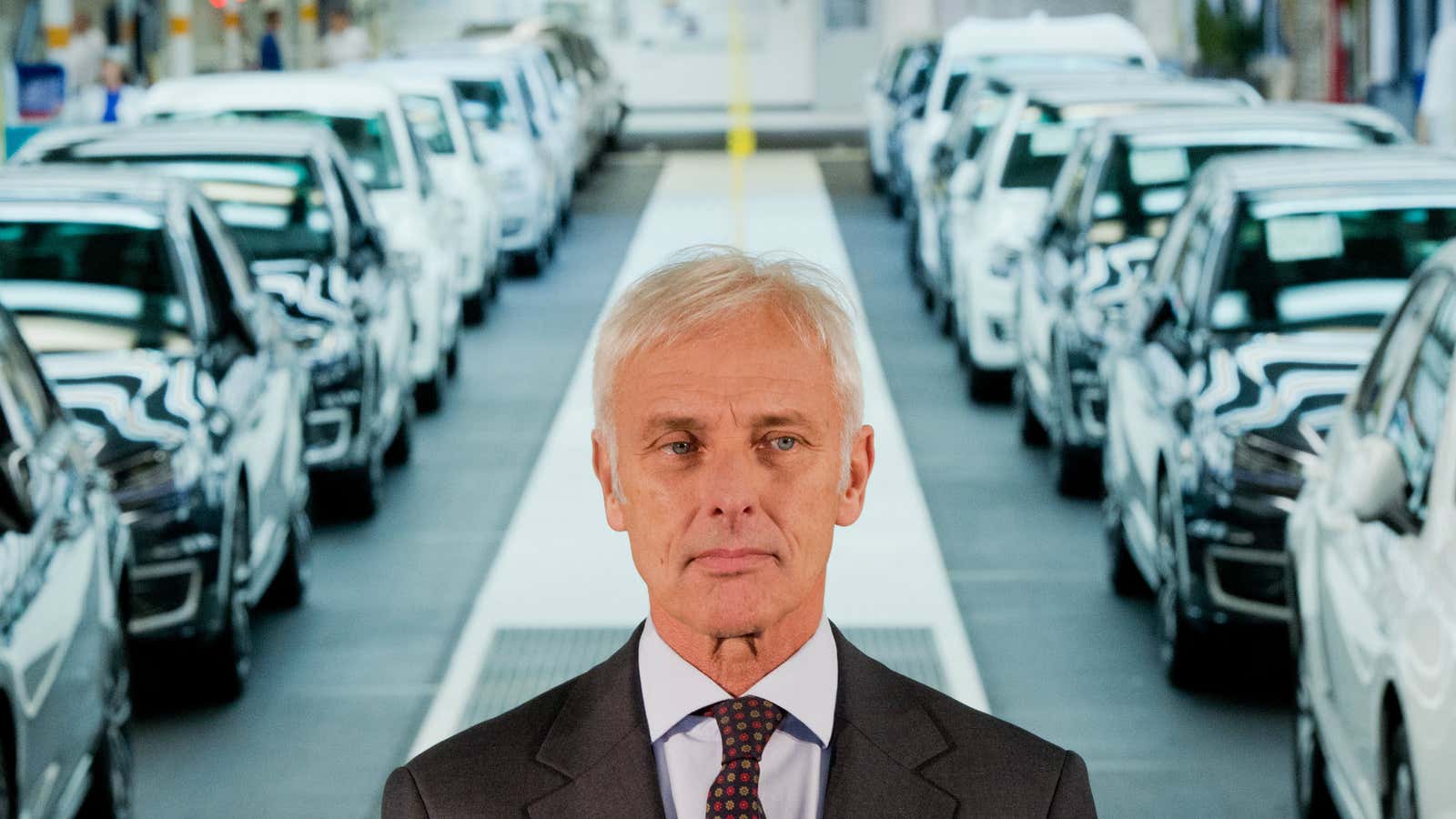“You, as shareholders of Volkswagen, have had to endure considerable pain for which we are deeply sorry.”
Matthias Müller isn’t kidding. Since Volkswagen was caught cheating on US emissions tests last month, the carmaker’s shares have lost a quarter of their value, destroying some €20 billion ($22 billion) in market value.
Amid a hasty management reshuffle, Müller was shifted from head of the Porsche division to CEO of the Volkswagen group one month ago. Today (Oct. 28) he had the honor of revealing Volkswagen’s first quarterly loss in more than 15 years:
Facing up to 11 million vehicle recalls, Volkswagen took a €6.7 billion charge in the third quarter, sinking what was otherwise a decent set of results—revenue grew by more than 5% versus the previous year. What’s more, the company said that despite the scandal, it expects revenue this year to grow by up to 4% over last year.
Investors saw the silver lining in the auto giant’s earnings, and bid up Volkswagen’s shares by 2% in Frankfurt, despite the general gloom that still hangs over the company. Volkswagen previously said it would set aside €6.5 billion to cover the cost of recalls, so upping those provisions by “only” €200 million is a rather modest escalation.
But as the company admits, this cost will almost surely rise much more steeply in the quarters ahead. By the letter of the law, US regulators could impose an $18 billion penalty on the carmaker. On top of the costs of likely fines, recalls, and full-blown car buybacks in other countries, some analysts think the ultimate cost of the scandal might push €80 billion.
What about it? CFO Frank Witter dubbed the financial burden “enormous but manageable.” Indeed, Volkswagen ended the third quarter with nearly €30 billion in cash and equivalents. The company also hinted that the brand damage could be contained to the US and Europe; Müller made a point of noting that only 2,000 cars will be recalled in China, a country that accounts for around 40% of Volkswagen’s unit sales. (Shortly after the conference call, the CEO hopped on a plane to China to accompany German chancellor Angela Merkel on a state visit.)
But even if the company can weather the financial impact of its past misdeeds, it won’t return to business as usual. Volkswagen is hatching a new strategy with “substantial new elements” to guide the group for the next 10 years, which Müller plans to reveal in 2016. Key to this will be a big bet on electric cars. It will also include downgrading its ambition to be the world’s largest carmaker.
“The point is not that Volkswagen sells 100,000 units more or less than a major competitor,” Müller said. “What I aim for is qualitative growth.” That means that customer satisfaction, compliance, and related goals will now rank as highly in managers’ minds as pure sales volumes. “Care is even more important than speed,” said the former boss of sportscar specialist Porsche, a telling sign that this won’t be an easy transition for anyone involved—including investors.
